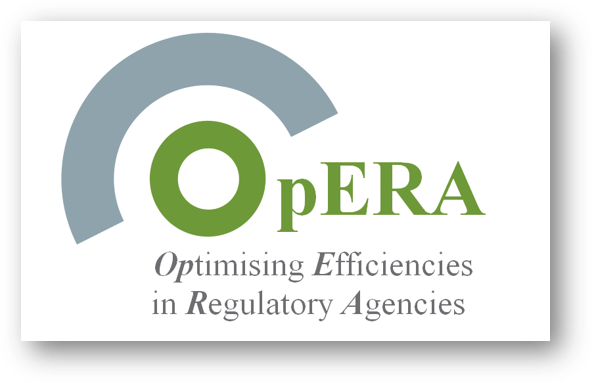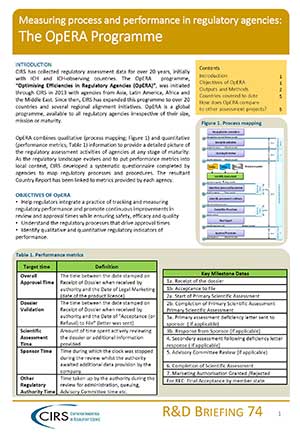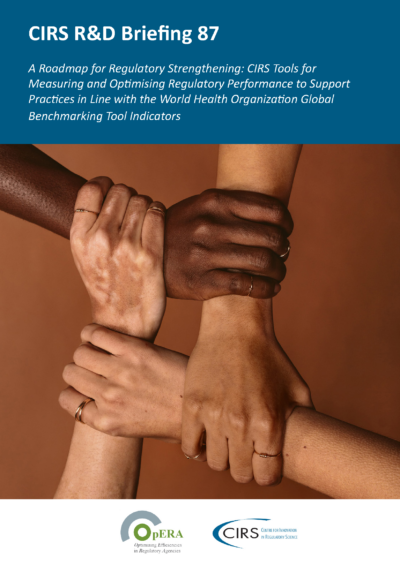OpERA programme
Strengthening regulatory systems is key to ensuring that regulatory agencies are providing effective and efficient services to their stakeholders. Over the past 20 years, CIRS has played an active role in this area by collecting performance metrics and building quality into the review process. Building on the success of its early benchmarking studies in ICH and ICH-observing countries, in 2013 CIRS initiated a unique metric collection programme called Optimising Efficiencies in Regulatory Agencies (OpERA) with agencies and regional alignment initiatives from Asia, Latin America, Africa and the Middle East. This was later expanded with the help of a grant from the Bill and Melinda Gates Foundation (BMGF).
OpERA objectives:
- Understand the regulatory processes that drive assessment and approval times
- Encourage systematic re-assessment of the medicine authorisation processes
- Provide a basis for comparison across processes used in the review of marketing authorisations
- Provide a simple process to collect benchmarking data specific to the regulatory review and assessment process
- Encourage the development of a systematic approach to self-monitoring and continuous improvement
- Help regulators integrate best practices that are fit-for-purpose for their remit, while ensuring the safety, efficacy and quality of their products.
Over 30 countries and several regional initiatives have been taking part in the OpERA Programme since its inception in 2013. The programme has successfully built a culture of measurement and refinement within participating agencies, helping them to define their review performance goals and optimise their review processes.
For example, CIRS worked with the Saudi Food and Drug Authority (SFDA) to characterise its review processes and practices and make comparisons with regulatory systems in Canada, Singapore, and Australia. This study not only identified SFDA’s key milestones and timelines, but also highlighted opportunities for improvement, including exploring a reliance model like that used in Singapore and publishing approval summaries that transparently communicate the rationale for agency decisions. The SFDA has since implemented a risk stratification model in its review process based on this study’s recommendations.
A more recent study with the National Pharmaceutical Regulatory Agency (NPRA) in Malaysia has identified where time is spent in NPRA’s process and provided the agency with a baseline for which performance improvements can be measured against. Participating in OpERA has not only helped NPRA to understand its regulatory performance but has also identified weaknesses and areas lacking capacity, which the agency is working to address. For example, NPRA has implemented a target start time for scientific assessment and limited the applicant response time to six months.
Annual OpERA Forums organised by CIRS have provided important opportunities for emerging national regulatory agencies to come together and share learnings. Attendees have identified new ways to improve their organisational efficiency and learned about tools and processes that will help build best regulatory assessment practices.



